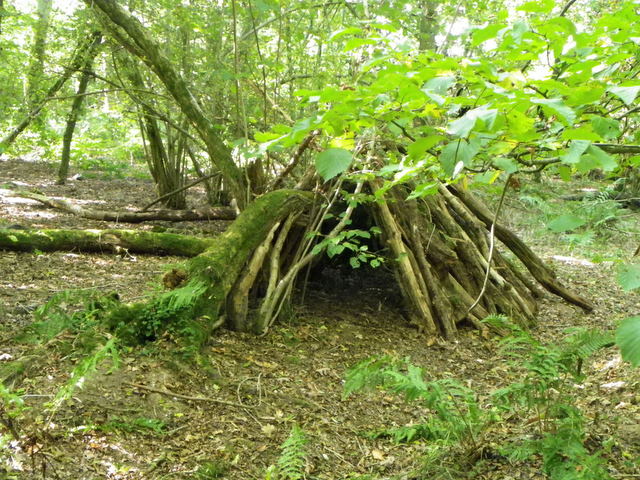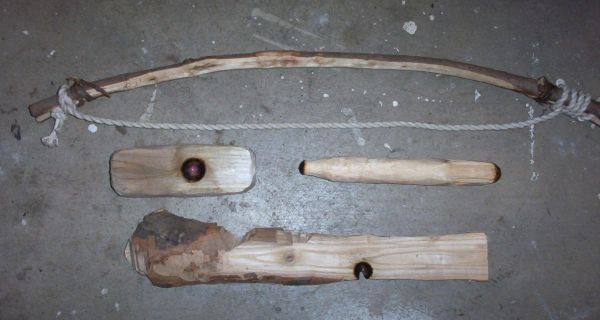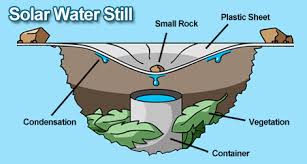In the modern world outdoor survival as a skill has, in many places, fallen by the wayside. Even in Mongolia where half the population live a nomadic lifestyle surviving by their wits and skills handed down the generations outdoor survival has lost its importance as the modern world increases its influence.
Despite this, outdoor survival and bushcraft should be considered essential skills for everyone to learn and have ready at hand in case of an emergency or just for personal pleasure. Here we have set down the very basics of outdoor survival that you need to consider before embarking on a bare essentials camping trip.

Essentials
- Core Temperature
The first thing that will kill you outdoors is hypothermia and so you need to maintain a core temperature of around 37℃ at all times to avoid hypothermia and death. Exercise (movement), nutrition and fire building are the 3 main ways to maintain a steady temperature.
- Hydration
After looking after your core temperature you need to keep your body hydrated. A person can potentially survive for up to 3 days without hydration but you do not want to test this in the field! For that reason it is essential that you always carry either fresh water or containers for collecting water along the way. You should also be wary of drinking contaminated water, boiling is a quick and pretty reliable method of purifying water from dubious sources.
Preparation
Bushcraft is as much about proper preparation as skill in the field. There are 5 Cs to remember when packing for an outdoor excursion
Cutting Tools - For many purposes such as cutting wood, preparing food and making equipment
Cover - To protect your core temperature from the outside elements with a personal microclimate
Combustion - For personal temperature, food preparation, water sterilisation and potentially for sterilising cutting tools in an emergency.
Containers - Essential for carrying and collecting water
Cord - For tying equipment, lashing shelters and general emergencies
Skills to learn
Once you have prepared for you trip there are 4 skills that will keep you alive in the wilderness
Shelter building
Make sure to produce a waterproof, dry area in which you are adequately protected from the elements without expending too much energy in the process. A well constructed shelter frame can also be used as a water catcher.
Fire Building and safety
Whilst we would recommend always taking some form of easy fire starting equipment with you (matches, flint lighter and fuel or simple flint and tinder) it is a god idea to learn how to make fire using good old friction just in case all else fails. A trustworthy method is using a fire bow-drill which can be fairly quickly constructed from materials lying around the forest and could well save your life if properly used.

Water collection
As mentioned, a shelter frame can often be used as a water catcher either with a plastic sheet spread across poles (if you have one) or potentially by collecting water in leaves suspended in an appropriate position if suitable leaves are available. In most cases we would suggest that you take a plastic sheet with you just in case. There are also methods such as solar water distillation which can be very effective if properly used but are unlikely to provide you with much more than a mouthful or two of water in an emergency unless you happen to be in a very humid environment.

Gathering and hunting
In an ideal situation you would be carrying sufficient rations for your trip but in an emergency you may find that you need to harvest food from the land. The most obvious form of nutrition is often mushrooms, fruit and berries but you should be careful when collecting these to eat as a good many wild berries and mushrooms are poisonous and should only be consumed if you are completely sure of their safety. If you are poisoned then it is advisable to induce vomiting as soon as possible afterwards and to re-hydrate fully and consistently, in some cases this might save your life. Protein can be problematic in the field but provided you are not squeamish you will find a large amount of sustenance in insects and other invertebrates, many lost hikers have bees sustained by eating large quantities of small insects until rescue arrives. Beyond that fishing is a relatively easy skill to learn and can sustain you if available. Small mammals, birds and larger animals may be a great source of nutrition but can be difficult to trap or hunt with limited resources so you should make an informed decision about how best to use your energies when hunting and gathering.

